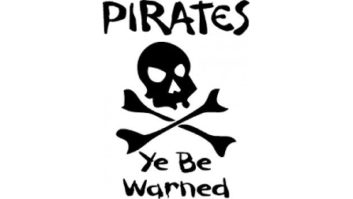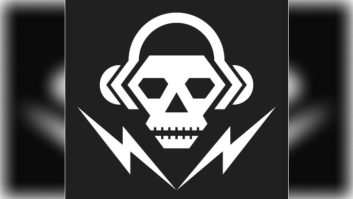WEST PALM BEACH, Fla. Nearly a year after the Florida legislature approved measures to crack down on unlicensed broadcast stations, the laws appear to have helped in some locations. However, those close to the situation say interference to licensed stations by “pirates” remains a major concern.
Pirate stations operate with no federal broadcasting licenses and typically are hard to catch because of their “broadcast-on-the-move” habits.
The Florida Association of Broadcasters, which represents about 550 radio stations, estimates that South Florida has more illegal broadcasters than any other region of the country. It says the problem is exacerbated by flat terrain that allows signals to travel farther and cause interference with licensed broadcasters.
State lawmakers passed a provision, signed into law by Gov. Jeb Bush last July, that calls for pirate broadcasters to face third-degree felony charges and stiff penalties if convicted. A conviction is punishable by five years in prison and a $5,000 fine. The law can be enforced by any law enforcement agency in the state.
Prior to the law being passed last year, only the FCC had the authority in Florida to fine violators and charge them with a federal misdemeanor.
C. Patrick Roberts, executive director of the Florida Association of Broadcasters, said, “The FCC staff has done all they can to cut down the problem. However, they are not law enforcement. The new state law gives local law enforcement the incentive to chase the problem, too. There is now a level of coordination between law enforcement and the FCC.”
Gathering evidence
Unlicensed broadcasters break state law by broadcasting without a license and not paying state taxes, Roberts said, and cause interference with emergency messages from broadcasters, such as hurricane warnings and Amber Alerts for kidnapped children.
“That endangers the lives of Floridians,” he said.
Roberts said that in South Florida, the FCC has approximately 20 investigations underway in what he characterized as a game of cat and mouse between commission agents and pirates.
“These guys typically stay on for short periods of time. It’s usually a case of compiling enough data on them to make an arrest.”
Roberts said the most brazen pirates conduct remotes and even sell local advertising time in some cases, with Miami-Dade, Broward and Palm Beach counties the hardest hit.
“Typically, the pirates we find are frustrated that they can’t break into mainstream broadcasting, ” Roberts said.
Non-commercial stations are particularly susceptible to pirate interference because of the tendency for unlicensed broadcasters to gather near the bottom of the FM dial, Roberts said.
According to Jerry Carr, president of WEXL(FM), pirates have jammed the Barry University station occasionally, on and off, for years. The station is in Boynton Beach, just south of West Palm Beach on the Atlantic Coast.
“The pirate problem is not as egregious as it was prior to the state law being passed,” he said. “I know firsthand the Broward County Sheriff’s Department has shut down several illegal operations. It’s making a difference. However, we just reported another pirate to local police in early June.”
WEXL broadcasts on 90.7 MHz and suffers periodically from pirates on 90.9 MHz in Fort Lauderdale, interfering with the southern part of WEXL’s signal into Broward County.
“We still go out occasionally with our own triangulation equipment to look for (pirates) ourselves, but that can be dangerous. I’ve been very supportive of the sheriff’s department’s efforts,” Carr said.
An FCC spokesman said field agents have shut down about a dozen illegal broadcasters in South Florida since the first of this year. The commission has praised the new Florida anti-pirate laws in several published reports.
‘Bolder’
While the FCC continues efforts to pursue illegal broadcast signals across the Sunshine State, business partners in a company founded more than a year ago to hunt down rogue broadcast signals say they have lots of interest from broadcasters (RW, June 16, 2004.) However, few have actually purchased the company’s signal finding services. They declined to identify specific customers.
Signal Finder Inc. President Lu Vencl and Vice President Steven Grey say the South Florida area is a “jungle of FM signals” with illegal broadcasters popping up sometimes on the first- and second-adjacent channels of legitimate broadcasters.
“These (pirates) are getting bolder and bolder. Yet broadcasters have been unwilling to pay for our services,” said Grey. “I think the lack of clients has been the result of broadcasters not having discretionary money to spend rather than a reduction in the number of unlicensed stations.”
An average Signal Finder job to track down an illegal signal and provide spectrum maps can run from about $500 to $700.
“As a result, broadcasters are more inclined to let their chief engineers try and handle interference from a pirate offender,” Grey said. “Engineers are typically not equipped to handle these things, nor do they have the time.”
Signal Finder works with communications companies, including cellular phone companies, to eliminate interference. It provides clients with a detailed report with the location of the offending signal, which can be used to pursue damages in civil court.
Grey and Vencl also work as consulting broadcast engineers.











